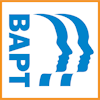What does the research say?
by John Hackston

We live in a VUCA world; for many people, the work environment is volatile, uncertain, complex and ambiguous.
While those of us with type preferences for Intuition may enjoy a certain amount of ambiguity, too much (and too much volatility, uncertainty, and complexity) will have a negative impact on anyone’s level of well-being.
This is clearly an issue for individuals, but it is a problem for organizations too; employees with higher levels of well-being are more productive, more creative, and much more likely to recommend their organization as a place to work.
So increasing well-being seems to be to everyone’s advantage, and it is not surprising that there is a great deal of advice available on how to do this. Not all of it, however, is based on firm evidence and much of it ignores individual differences between people. For practitioners seeking to use their knowledge of psychological type to help those struggling with their well-being, these are unfortunate omissions. So in several of our recent research projects at The Myers-Briggs Company, we’ve been trying to fill this gap.
Three of our studies are particularly relevant:
Well-being at work.
Over 10,000 people completed the PREMAN questionnaire, giving their results on six elements of well-being (Positive Emotions, Relationships, Engagement, Accomplishment and Negative Emotions). We identified gaps in well-being (overall, Positive Emotions had the lowest rating), differences by gender, age, nationality and occupation and investigated what methods are most often used to improve well-being, and which work.
We also looked at how well-being related to type; on average, those with a preference for Extraversion had higher levels of well-being than people with a preference for Introversion (I’ll leave it to you to guess the whole types with the highest and lowest levels on average). We were also able to say which strategies work best for each type, allowing us to develop personalised advice.
For example, for people with my type preferences (INTP), exercise was particularly useful for improving general well-being and undertaking work where I learn something new came top for improving well-being at work (I did go to the gym this morning, so I can allow myself a small self-congratulatory glow).
Thriving in the gig economy.
The gig economy is growing; by 2030, there may be more freelancers than traditional employees. Based on a survey of 1,300 people, we investigated why people become gig workers, the best and worst things about gig work, and how these perceptions differ by type. Gig work can be stressful, but the information we collected allowed us to develop type-based guidelines for gig working. For example, for my type preferences, likely strengths as a freelancer or gig worker include:
- Less concerned with the formal trappings of status
- Flexible, adaptable, open to new ideas and experiences
- Generally happy to work alone and in a transactional way
And possible tips for development were:
- Don’t neglect planning and admin – they do matter
- If you take too long to act on your decisions, you may miss out
- Avoid roles that are repetitive or routine if you can
We will be making the guidelines available online in the near future.
Working in an always-on culture.
With smartphones always within reach, we can find it difficult to switch off from work, especially in a VUCA environment where we may feel that staying connected is one way to keep some control over our working lives. However, this ‘always-on’ behaviour has been linked to increased stress and work-home conflict.
Based on a survey of 1,116 people, we found that the always-on culture is something of a double-edged sword. Those able to access work emails or phone calls outside of work were more distracted, more stressed and had higher levels of work-home conflict but were also more engaged in their work and had greater job satisfaction. There were relationships with personality, and we were able to outline strategies that workers with different type preferences can use to improve their well-being.
For example those who, like me, have preferences for both Thinking and for Perceiving often value the freedom and flexibility that the always-on culture brings and enjoy being able to work from home or when the inspiration takes us without feeling ‘always-on’, but we can forget that others may not feel the same and ignore the boundaries that they are trying to maintain between ‘work’ and ‘not work’. Remembering not to send emails outside business hours, unless urgent (even if this means writing the email and delaying sending it) may work wonders.
Taken together, these three studies shed light on well-being in general, on well-being amongst gig workers and freelancers, and on how the always-on culture affects well-being. For type practitioners, the knowledge of what approaches work best for each type may be especially useful. We’ll be publishing detailed results, and practical implications, on the Myers-Briggs Company website (www.themyersbriggs.com) later in the year, and I’ll also be presenting these at the BAPT conference in April: https://www.bapt.org.uk/events/2019-conference.
About the Author

John Hackston is a Chartered Psychologist and Head of Thought Leadership at The Myers-Briggs Company. He has over thirty years of experience in helping clients to use psychometric tests and questionnaires. John carries out research to bring personality assessments, in particular the MBTI, to life, helping practitioners and end users apply the insights they gain both inside and outside work.
jhackston@themyersbriggs.com; www.themyersbriggs.com
[Photo by Victor Freitas from Pexels]

